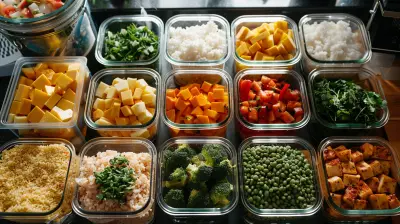Plant-Based Sources of Essential Vitamins for Vegans
18 September 2025
Switching to a vegan lifestyle is an incredible choice for your health, the environment, and animal welfare. But let’s be real—one of the first questions people ask is, “Where do you get your nutrients from?” Specifically, essential vitamins.
Truth is, you don’t need animal products to stay healthy. Plants pack all the vitamins your body craves! You just need to know where to find them. So, let’s break it down and uncover the best plant-based sources of essential vitamins for vegans. 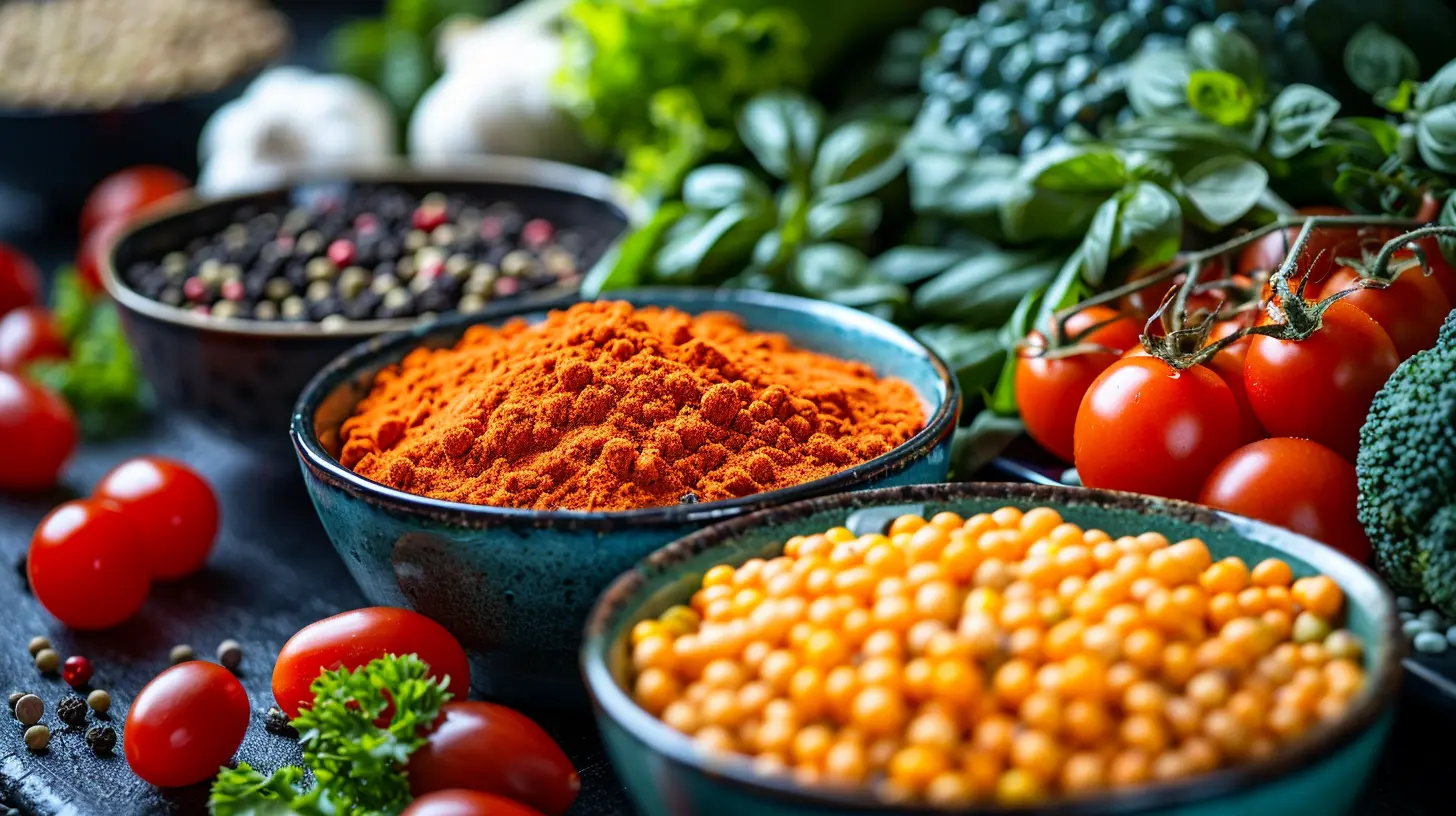
Vitamin A – The Vision Booster
Vitamin A is essential for eye health, immune function, and skin. Most people associate it with animal-based sources like liver, but plants provide it in the form of beta-carotene.Top Vegan Sources of Vitamin A:
- Sweet Potatoes – Just one medium sweet potato gives you more than your daily Vitamin A needs.- Carrots – Classic, crunchy, and loaded with beta-carotene.
- Spinach & Kale – Dark leafy greens are powerful Vitamin A sources.
- Pumpkin & Butternut Squash – Perfect for soups and roasted dishes.
Pro Tip:
Since Vitamin A is fat-soluble, always pair it with a healthy fat, like avocado or olive oil, to boost absorption.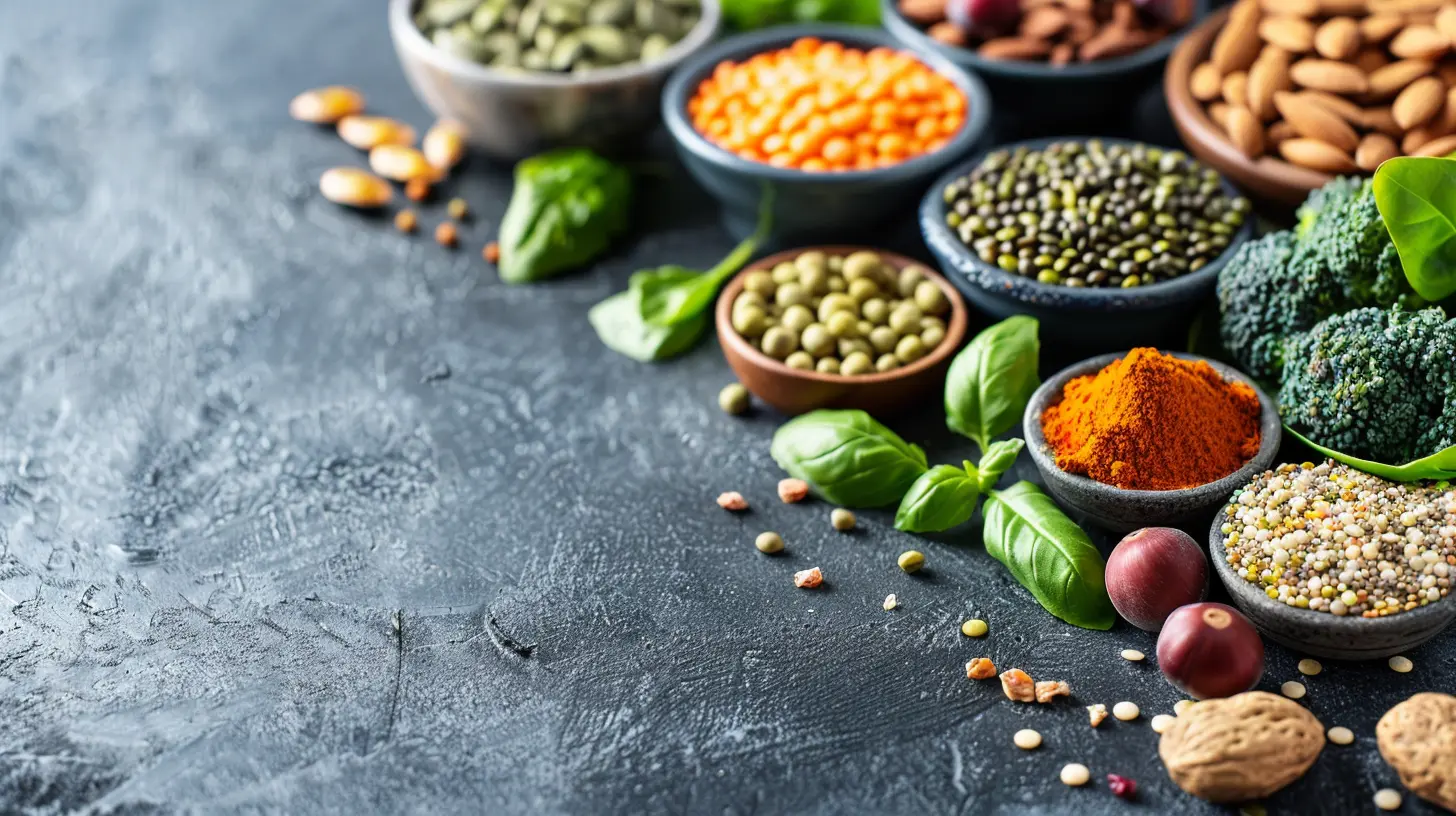
Vitamin B12 – The Hardest to Get
Here’s the kicker: B12 is the only vitamin that isn't naturally available from plants. It’s made by bacteria, traditionally consumed through animal products. But don’t worry—there are still ways to get it on a vegan diet.Top Vegan Sources of Vitamin B12:
- Fortified Nutritional Yeast – The holy grail for vegans! Sprinkle it on everything.- Fortified Plant-Based Milk – Check labels for B12-enriched options.
- Fortified Cereals – Great for a quick boost in the morning.
- B12 Supplements – Honestly, the safest and most reliable option.
Final Word on B12:
Don’t skimp on this one. A deficiency can lead to fatigue, nerve damage, and cognitive issues. Supplements are your best bet.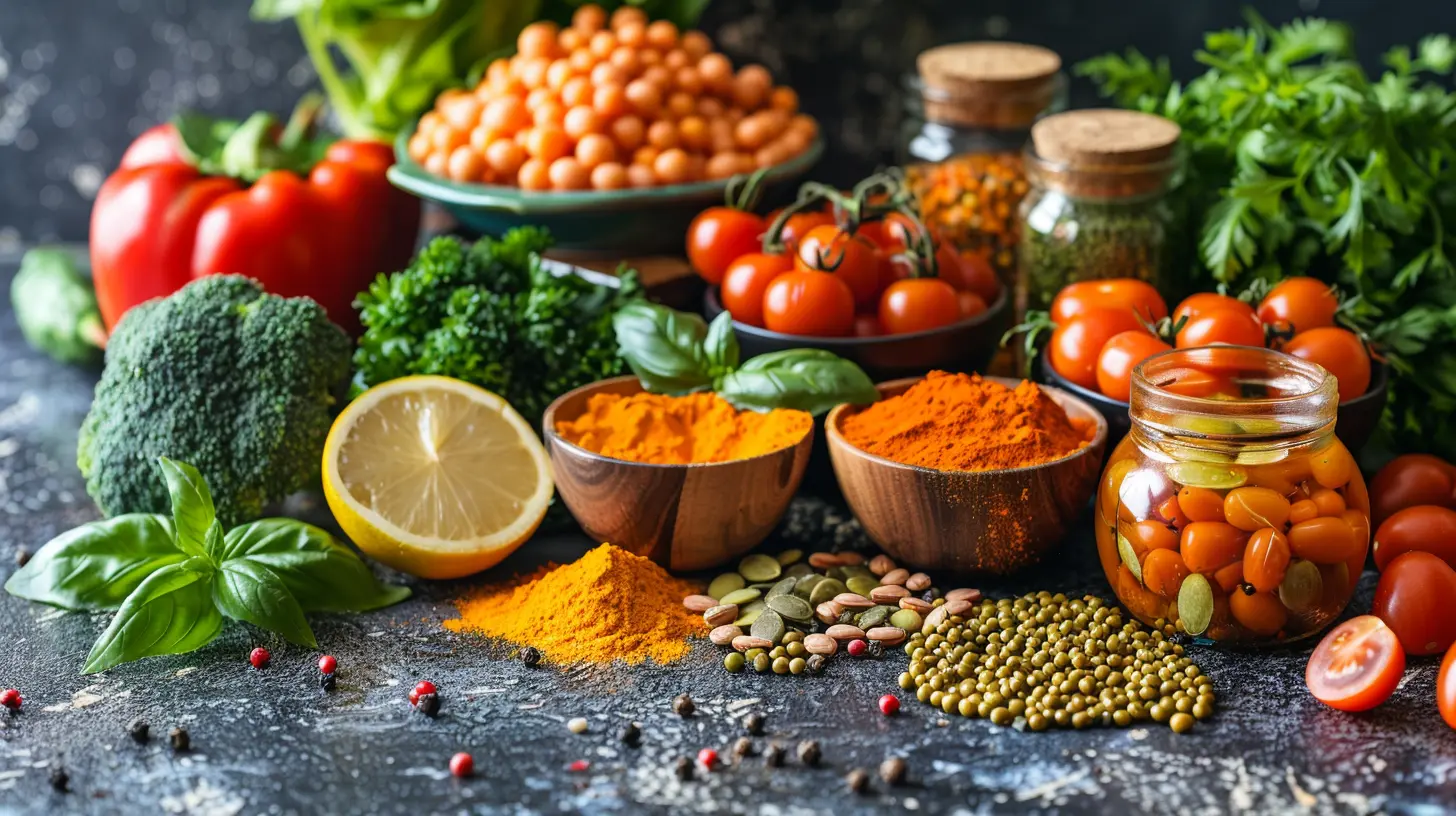
Vitamin C – The Immunity Defender
Vitamin C is crucial for a strong immune system, collagen production, and iron absorption. Good news? It’s one of the easiest vitamins to get on a plant-based diet.Top Vegan Sources of Vitamin C:
- Citrus Fruits (Oranges, Lemons, Grapefruits) – A daily dose keeps your immune system in check.- Bell Peppers – Especially red ones, which have even more than oranges!
- Kiwi & Strawberries – Tiny but packed with Vitamin C.
- Broccoli & Brussels Sprouts – Veggies count too! Steam them to retain nutrients.
Best Way to Absorb Vitamin C:
Eat it raw when possible. Cooking can break down Vitamin C, reducing its potency.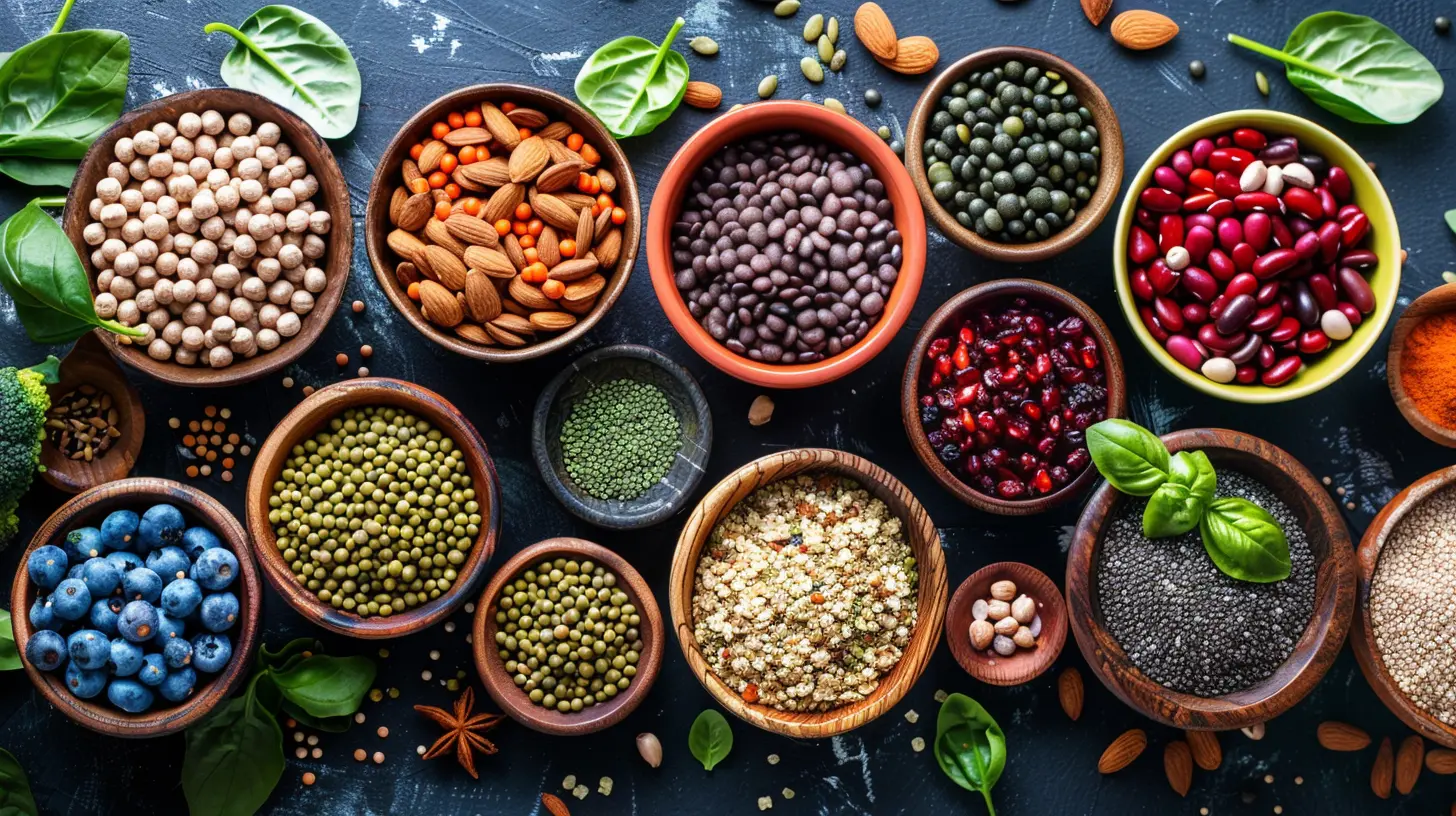
Vitamin D – The Sunshine Vitamin
Vitamin D is essential for bone health, immune function, and mood regulation. Unfortunately, there aren't many plant-based food sources.Top Vegan Sources of Vitamin D:
- Sunlight – Your body naturally produces Vitamin D when exposed to sunlight. Aim for 15-30 minutes daily.- Fortified Plant-Based Milk – Look for soy, almond, or oat milk with added Vitamin D.
- Mushrooms – When exposed to sunlight, mushrooms generate Vitamin D (especially maitake and portobello).
- Supplements – If you’re not getting enough sun, a good Vitamin D2 or D3 supplement is key.
Quick Tip:
Vitamin D3 (usually derived from animals) is more effective than D2. However, vegan D3 (from lichen) is available!Vitamin E – The Skin Saver
Vitamin E is a powerful antioxidant that keeps your skin glowing and protects your cells from damage.Top Vegan Sources of Vitamin E:
- Almonds & Sunflower Seeds – Snack on a handful daily.- Spinach & Swiss Chard – More leafy greens for the win!
- Avocados – Healthy, creamy, and loaded with Vitamin E.
- Hazelnuts & Pine Nuts – Great for adding crunch to salads.
Pro Tip:
Pair Vitamin E-rich foods with Vitamin C for better absorption and extra antioxidant benefits.Vitamin K – The Blood Clotter
Vitamin K plays a crucial role in blood clotting and bone health. There are two types:- K1 – Found in plants.
- K2 – Mostly found in animal products and fermented foods.
Top Vegan Sources of Vitamin K:
- Kale, Spinach & Collard Greens – The best sources of Vitamin K1.- Brussels Sprouts & Broccoli – Add them to stir-fries or salads.
- Fermented Soy (Natto) – One of the few plant-based sources of Vitamin K2.
- Olive & Soybean Oil – A great cooking oil choice.
Absorption Hack:
Since Vitamin K is fat-soluble, eat it with healthy fats (like nuts or avocado) to maximize absorption.Final Thoughts
Going vegan doesn’t mean missing out on essential vitamins—it just means being more intentional with your food choices. By incorporating these nutrient-packed plant-based sources into your diet, you can thrive on a vegan lifestyle without deficiencies.So, next time someone asks you, “Where do you get your vitamins?” you’ll have a confident answer. Stay balanced, eat a rainbow, and keep thriving on plants!
all images in this post were generated using AI tools
Category:
VitaminsAuthor:

Arthur McKeever
Discussion
rate this article
1 comments
Kalani McMurtry
Thank you for this informative article! It's so encouraging to see resources that highlight how vegans can thrive on a plant-based diet. Your compassionate approach helps make healthy choices accessible and inspires confidence in our nutritional journeys.
September 21, 2025 at 3:58 AM

Arthur McKeever
Thank you so much for your kind words! I'm glad you found the article helpful and inspiring on your plant-based journey.


